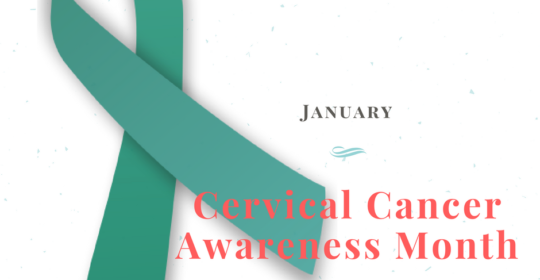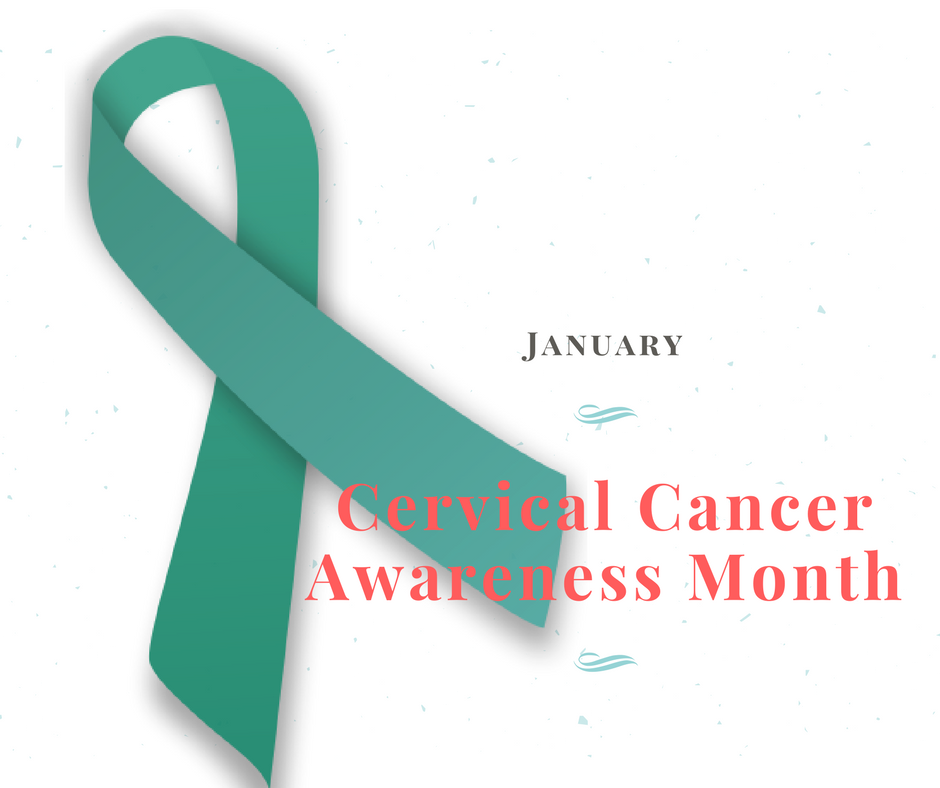
Cervical Health Awareness Month
The United States congress designated January as Cervical Health Awareness Month to raise awareness about how women can protect themselves from HPV (human papillomavirus), cervical cancer, and the importance of early detection. According to Office of Disease Prevention and Health Information, about 79 million Americans currently have HPV. Many people with HPV don’t know they are infected. And each year, more than 11,000 women in the United States get cervical cancer.
What is cervical cancer?
Cancer is a disease in which cells in the body grow uncontrollably. Cancer is always named for the part of the body where it starts, even if it spreads to other body parts later. Cervical cancer is cancer that starts in the cervix, the narrow opening into the uterus from the vagina. Worldwide, cervical cancer is the second most common type of cancer for women. However, since this type of cancer develops over time, it is becoming one of the most preventable types of cancer and it is also highly curable when found and treated early.
Who gets cervical cancer?
According to the Center for Disease Control and prevention (CDC), all women are at risk for cervical cancer. It occurs most often in women over age 30. Each year, approximately 12,000 women in the United States get cervical cancer. The human papillomavirus (HPV) is the main cause of cervical cancer. HPV is a common virus that is passed from one person to another during sex. Most sexually active people will have HPV at some point in their lives, but few women will get cervical cancer. For most women the HPV infection does not last long; 90% of HPV infections resolve on their own within 2 years. A small number of women do not clear the HPV virus and are considered to have “persistent” infection. A woman with a persistent HPV infection is at greater risk of developing cervical cell abnormalities and cancer than a woman whose infection resolves on its own.
In addition to having HPV, smoking, having HIV (the virus that causes AIDS), or another condition that weakens the immune system, prolong use of birth control pills ( five or more years), having given birth to three or more children, can all increase your risk of cervical cancer.
What are the symptom?
Precancerous cervical cell changes and early on, cervical cancer may not cause signs and symptoms. For this reason, regular screening through Pap and HPV tests can help catch precancerous cell changes early and prevent the development of cervical cancer. Advanced cervical cancer may cause abnormal or irregular vaginal bleeding, pain during sex, heavy or unusual vaginal discharge, pelvic pain unrelated to your menstrual cycle, and pain during urination. Since these symptoms could also be signs of other health problems, possibly not related to cervical cancer. If you experience any of the symptoms above, talk to a healthcare provider.
Treatment for Vaginal Bleeding is available now at South Atlanta Urgent Care Clinic in Atlanta.
What are the treatments?
The particular stage of cervical cancer is one of the most important factors in evaluating treatment options. A gynecologic oncologist—a doctor who has been trained to treat cancers like this, will work with you to create a treatment plan. Treatment choices for cervical cancer may be a single therapy or a combination of therapies, such as surgery to remove the cancer, radiation therapy, chemotherapy, and chemoradiation, a combination of chemotherapy and radiation.
How can I prevent cervical cancer?
The HPV vaccine (shots) can prevent HPV. Get the HPV vaccine. It protects against the types of HPV that most often cause cervical, vaginal, and vulvar cancers. It is recommended for preteens (both boys and girls) aged 11 to 12 years, but can be given as early as age 9 and until age 26. The vaccine is given in a series of either two or three shots, depending on age.
Regular screening tests and follow-up care can also prevent cervical cancer. As the screenings can help detect abnormal (changed) cells early before they turn into cancer, you should see your doctor regularly for a Pap test that can find cervical precancers. Most deaths from cervical cancer could have been prevented with regular screenings and follow-up care. So if your Pap test results are not normal, continue follow up with your doctor. It is important to note that even women who are vaccinated against HPV need to have regular Pap tests to screen for cervical cancer.
Also reduce the risks by avoiding smoking as both active smoker and passive smokers are at risk, use condoms during sex, and limit the number of sexual partners.
Source:
- CDC
- ODPHP
- NIH
Read more :



Most Commented